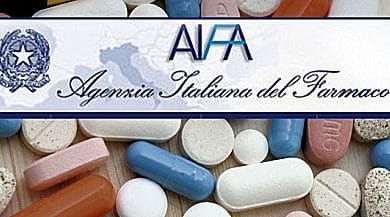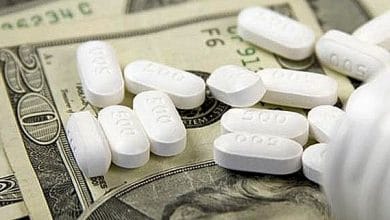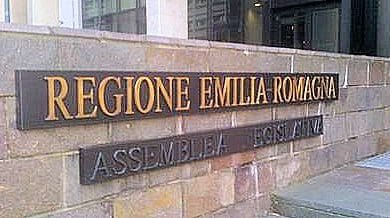
“The consumption of medicines is not regulated by the criterion of pleasure, but by that of utility, mediated by the medical profession, so that doctors are recipients of a specific form of advertising which aims not at abstractly advertising the product by praising its virtues or visual pleasantness of the package, but to inform them of the nature and pharmaceutical benefits of the product, in which cases it is indicated, in which it is not and in which it is even harmful" (see Cassation n. 25053 of 2006; see also v. Cass. no. 8844 of 2014 page 9, Court of Cassation no. 2349 of 2013; Cass. no. 5494 of 2013)"
The Supreme Court also affirms with Sentence 1783/2010 (criminal section) that "...no one is allowed to put the economic logic before the logic of health protection, nor to issue directives which, in compliance with the former, place the needs of the patient". and "the scientific informant is not a commercial agent" (Cass. Labor Section - sentence 15 September 2014 n. 19394).
AIFA (8/19/2002, in response to 800.1/IS/3573) states that "the Scientific Representative can only depend on the person in charge of the scientific information and the Scientific Representative cannot in any way be configured as a commercial agent" and "must play a role in updating the cultural baggage of healthcare professionals also suitable for a better identification of pharmacological therapies". Also recently the AIFA (Prot. AG/106373.P of 05/10/2017) reiterated the importance of the ISF's activity which, in order to focus attention on the social function of drugs in the protection of public health, must maintain a high degree of autonomy in carrying out the information service for doctors, in intent not to be conditioned by purely private commercial interests.
Current legislation defines scientific drug information as the set of information relating to the composition of drugs for human use, their therapeutic activity, indications, precautions and methods of use, including the grantability by the NHS, the results of clinical studies controlled tests concerning immediate and long-term efficacy and toxicity, intended for doctors and pharmacists, with the aim of ensuring correct use of the drug.
Between research and the doctor, an irreplaceable intermediary is certainly the scientific representative of the drug, a qualified professional, with in-depth preparation and continuous professional updating.
Whistleblowers must report to a scientific service and not to a sales or marketing management. So says the Legislative Decree 541/92, The Legislative Decree 219/06, the guidelines of the Conference of Regions on scientific informationregional laws and regulations, European directives and judgments of State Council, of the Cassation which condemn those companies that use the ISF as sellers.
The responsibility of scientific representatives was also sanctioned by the decree of the Minister of Health of 23 June 1981, which obliges them (article 10) to collaborate with the Ministry of Health, also with suggestions and indications, in order precisely to ensure the correct and optimal performance of drug information activities.
Furthermore, the public service value attributed to the activity of scientific representative of the drug by the health reform law is confirmed by the legislation indicated by the decrees of the Minister of Health of 23 June 1981, 23 November 1982, 26 February 1985, 4 December 1990, and 3 July 1992 (all on the regulation of scientific information on drugs), as well as by the decrees of the Minister of Health of 20 March 1980 and 28 July 1984 (on monitoring of drugs), by the legislative decree 30 December 1992, n. 541, and subsequent amendments, (in implementation of directive 92/28/EEC concerning the advertising of medicines for human use), by law 6 February 1996, n. 52, and by the regulation referred to in the decree of the President of the Republic 7 December 2000, n. 435 (both, among other things, on the involvement of drug sales representatives in pharmacovigilance activities).
According to the laws that regulate its activity (Legislative Decree 219/06) the informant must have a university degree in biomedical or chemical-pharmaceutical disciplines (listed inart. 122 and later mod.) or the specific degree in scientific information on drugs. Must have high and adequate training to be able to communicate correctly with doctors and pharmacists.
Before starting the activity, the Scientific Representative attends a long and in-depth company training course, which will allow him to know all the characteristics of the medicines produced by the company for which he will work and will have to carry out continuous non-sales or marketing but technical / scientific business and possibly associative promoted by FEDAIISF.
Scientific Representatives represent a continuous and irreplaceable source of news for the doctor. Each individual informant is, in relation to his own sector, an expert capable of reporting to the doctor all the baggage of experience relating to the specialties covered by his activity. His work is aimed at making doctors aware of the characteristics and properties of medicines, in order to ensure their correct use in the exclusive interest of patients.
It is also the duty of the Pharmaceutical Representative to report to the Head of the Scientific Service, on whom he depends, and to the company's Pharmacovigilance, all observations on medicinal products reported by healthcare professionals (art. 122 and 126 of Legislative Decree 219/06). This flow of information contributes decisively to ensuring the correct use of the drug in therapy, providing useful information for the development of research.
Pharmaceutical Representatives (ISF) therefore should not have to deal with sales precisely in order not to create conflicts of interest, a principle already recognized and in force and which the recent law on competition (Law 4 August 2017, n. 124, paragraph 157.b) confirms, reiterating the incompatibility constraint for the owners or for the companies that own the pharmacy with the activity carried out in the sector of scientific drug information.
To guarantee the legal characteristics of the ISF and to protect and guarantee citizens, a Register or Order of Scientific Informers is essential.
This need was well present in the institutions, so much so that in all legislatures the bills to establish it were very numerous, the most significant of which was in 2006 the bill S.404-D, already approved by the Chamber and by the Senate Health Commission and only the last vote in the Chamber for the dissolution of Parliament was missing.
The NHS certainly cannot afford to tolerate information manipulations that alter "healthy" competition in the pharmaceutical sector (which must be based on quality and price) by increasing waste and therefore, ultimately. they harm all of us, as citizens and potential users of the service.
The efficiency of Pharmaceutical Representatives obviously cannot be measured on the basis of the number of drugs that are sold but should be measured on the degree of competence, updating and useful information transmitted to the prescriber and/or healthcare professional.
In recent years we have witnessed abuses of all kinds and we have ascertained that neither the Farmindustria Code of Conduct nor the AIFA nor the NAS have controlled or sanctioned anything.
A figure of the ISF outlined in this way needs rigorous control which can only be exercised by a specific professional order placed "under the high supervision of the Ministry of Health" which on the one hand protects the Members and on the other, precisely through the defense of professionalism, protect the community.
The law that reforms the health orders (Law Lorenzin) establishes
Article 5
1. The identification of new health professions that do not find correspondence in already recognized professions takes place on the initiative (…) of the professional associations representing those who intend to obtain this recognition. To this end, the associations concerned send a reasoned request to the Ministry of Health, which pronounces itself within the following six months and, in the event of a positive evaluation, activates the procedure referred to in paragraph 2.
2. The establishment of new health professions is carried out, in compliance with the fundamental principles established by this law, subject to the technical-scientific opinion of the Superior Health Council, through one or more agreements, sanctioned in the Permanent Conference for relations between the State, the regions and the autonomous provinces of Trento and Bolzano, pursuant to article 4 of the legislative decree of 28 August 1997, n. 281, and implemented with decrees of the President of the Republic, following a resolution by the Council of Ministers.
3. The agreements referred to in paragraph 2 identify the professional title, the field of activity of each profession, the criteria for evaluating professional experience as well as the criteria for the recognition of equivalent qualifications. By decree of the Minister of Education, University and Research, in consultation with the Minister of Health, having obtained the opinion of the National University Council and the Superior Health Council, the didactic system of university training for new professions is defined health identified pursuant to this article.
4. The definition of the functions characterizing the new health professions takes place avoiding fragmentation and overlapping with the already recognized professions or with their specializations».
Scientific reps are aware that the correctness of the information and of the resulting prescription largely depends on their daily relationship with doctors, and they reject any conditioning that could have distorting effects on the prescription. They also refuse, together with the Companies, to use resources for purposes not connected to the correct illustration of the technical-scientific characteristics of the drug, to its most appropriate use, as well as to the continuous education of the doctor, and in particular for tools aimed at improperly influencing the prescription .
Information on the drug must necessarily have as its objective that of cultural growth in healthcare professionals and in the patient but as such requires a continuous commitment to update. In Italy we are acquiring an approach that sees the professionalism of the healthcare operator linked to continuous training. In this sense, (in)training requires specific professionals who have the mission of continuously providing data and updates useful for clinical practice. The efficiency of these figures obviously cannot be measured on the basis of the number of drugs that are sold but should be measured on the degree of updating and useful information transmitted to the prescriber and/or healthcare professional. To do all this, a Professional Order of the ISF is essential
News correlate: AIFA Lettra Dr. Magrini on ISF coaching





